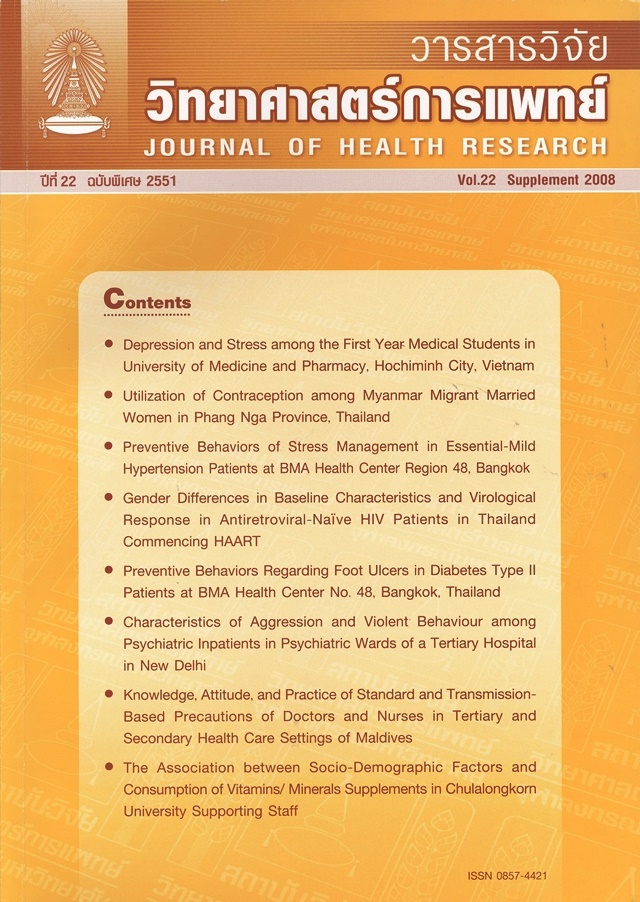Prevalence and Determinants of Access to, Perceptions on, and Preferences for, HIVrelated Health Education in Myanmar Migrant Workers in Ranong, Thailand
Keywords:
Accessibility, Perception, Preference, Myanmar Migrant Workers, HIV-related Health EducationAbstract
This study was done to assess the accessibility to, perceptions on and preferences for HIV-related health education among Myanmar migrant workers in Ranong Province, Thailand. A cross-sectional study design with structured questionnaire and an open-ended question was used, and 357 subjects were interviewed. Non-parametric tests and bivariate correlation were used for hypothesis testing. In all, 245 workers (68.6%) had received HIV-related health education. Longer length of stay in Ranong was associated with greater access (p<0.001), but youth (15-25 yr.) had less access than older subjects (p=0.010). There was no significant difference in access when comparing the high-risk occupational groups with other occupations, but when fishery-related workers were excluded, high-risk workers had more frequent access than others (p<0.001). Regarding perceptions, only 6.2% agreed that they had adequate access, and also only 11.6% were satisfied with level of access. However, all believed that HIV/AIDS is an important matter. All preferred participatory types of HIV-related education over non-participatory ones (p<0.001). This preference was significantly stronger in the high-risk groups than in others (p=0.009). However, they also preferred some non-participatory methods, especially condoms and lubricants, cartoon/comic booklets, real-life photo story booklets, pamphlet/leaflets/ brochures, TV drama, and TV spots. The migrant workers strongly preferred to receive HIV-related health education in any place except government health centers and border gates. In addition, the majority of the supplementary qualitative information from the open-ended question reinforced the quantitative findings of the study.







